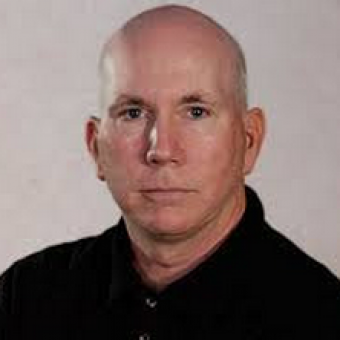Fox News Flash top headlines for May 2
Fox News Flash top headlines are here. Check out what's clicking on Foxnews.com.
As 2024 is the 60th anniversary year of the release of "My Fair Lady," starring Audrey Hepburn and Rex Harrison, my wife and I recently sat down to rewatch the classic. A truly iconic film which was nominated for an astounding 12 Academy Awards. It ended up winning eight, including "Best Picture," "Best Director" and "Best Actor."
However, notably absent from even a nomination, was the film’s lead, Audrey Hepburn. Why?
Well, while most may not be aware of it 60 years after the film premiered, there was quite a controversy back then involving the casting of Audrey Hepburn in the role of Eliza Doolittle over Julie Andrews, who had played the character so wonderfully on stage.
ANNE HATHAWAY CELEBRATES FIVE YEARS OF SOBRIETY: ‘FEELS LIKE A MILESTONE’
While Hepburn and Andrews may have been innocent bystanders in the crossfire between powerful Hollywood moguls, it was Hepburn who suffered permanent collateral damage.
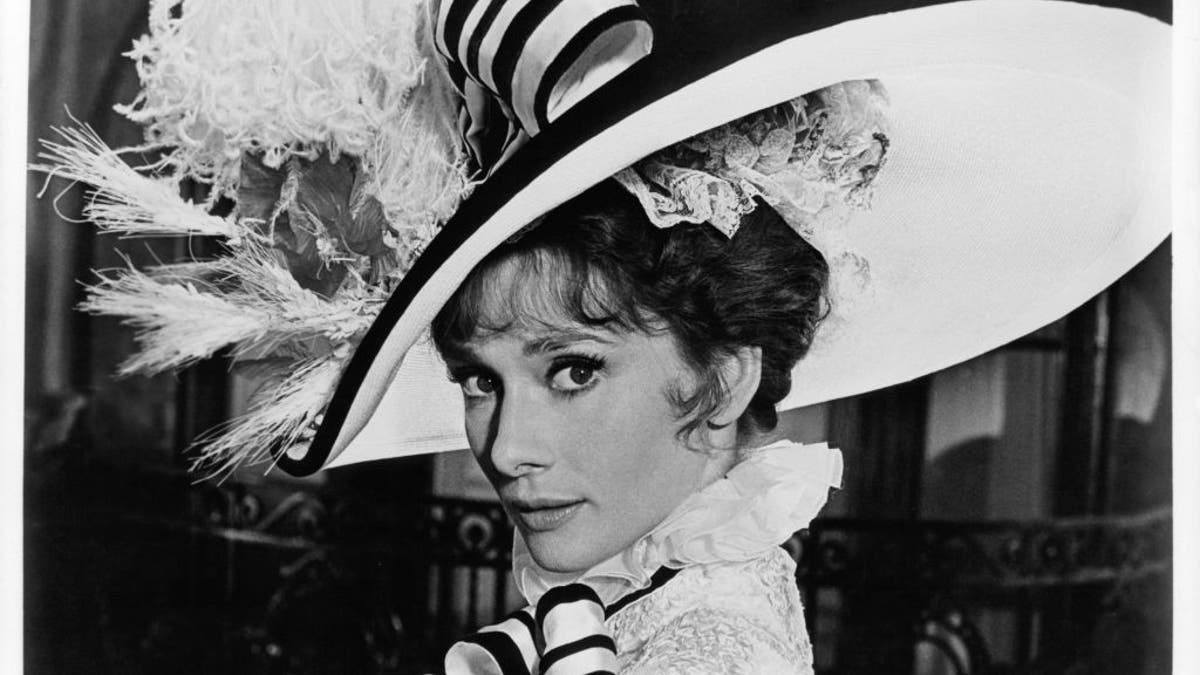
Audrey Hepburn wearing a large hat in a scene from the film "My Fair Lady," 1964. (Photo by Warner Brothers/Getty Images)
As one who got to meet Hepburn in the late ’80s and assist her with a project, I have long believed that a defense of her was in order regarding this mean-spirited controversy. As advertised, she was the personification of elegance, class, kindness, and empathy. Qualities I used to pay homage to her in a little romance novel titled: "Channeling Audrey Hepburn – The Romantic Misadventure of a Lifetime."
With regard to the controversy over the casting of "My Fair Lady," when the film was first announced – after the massively successful stage production which took place on Broadway starring Rex Harrison and Julie Andrews – many in and out of Hollywood assumed – and hoped – that Harrison and Andrews would reprise their stage roles in the film. One of those hoping so being Hepburn herself.
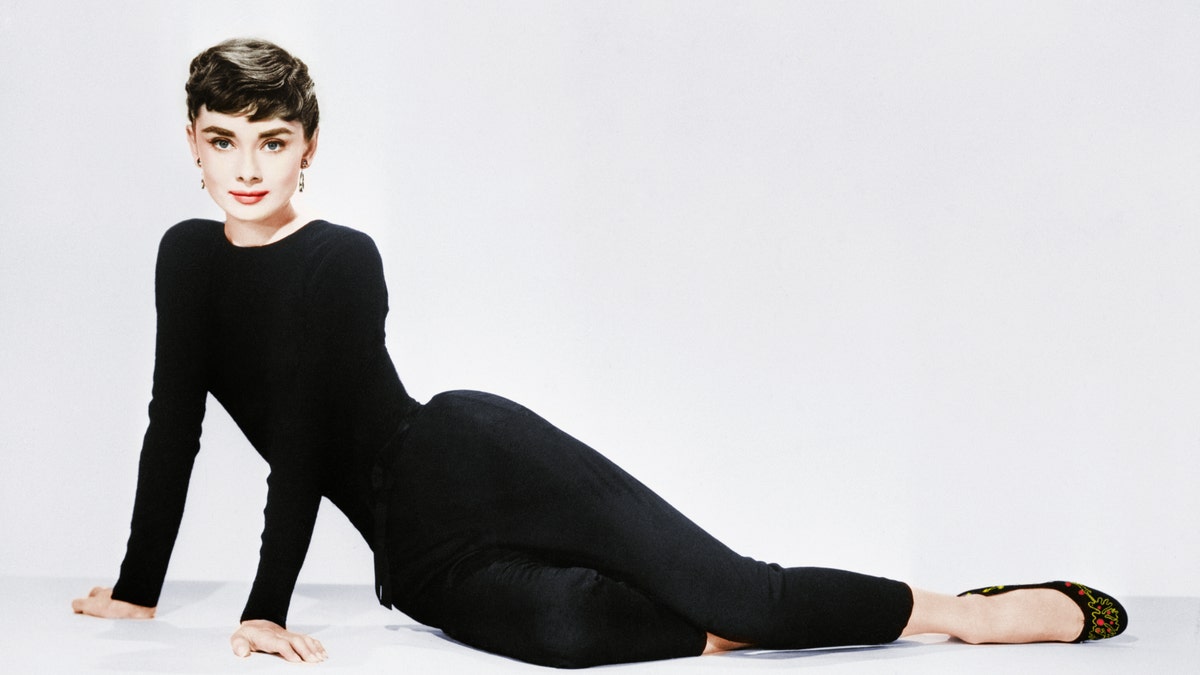
Audrey Hepburn poses for her publicity photo to promote the film "Sabrina." (Getty Images)
After it was confirmed that Harrison would be in the film, but that Andrews would be replaced by Hepburn, Hepburn attempted to set the record straight: "I understood the dismay of people who had seen Julie on Broadway. Julie made that role her own, and for that reason, I didn’t want to do the film when it was first offered. I learned that if I turned it down, they would offer it to another movie actress. I thought I was entitled to do it as much as the third girl, so then I did accept."
Jack Warner, the all-powerful studio boss, had decided from the start that Andrews would not be in the film. He felt – as amazingly talented as she was – that she was an unknown and the investment he and the studio were making required a world-famous actress.
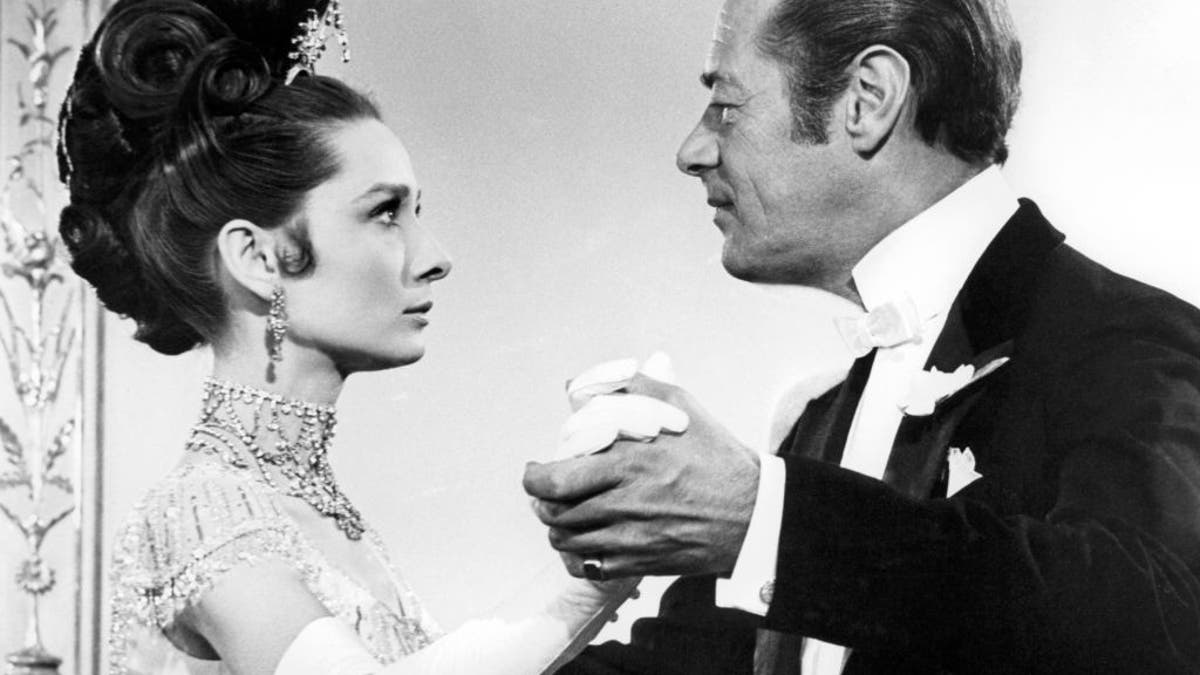
Audrey Hepburn (1929-1993), as Eliza Doolittle, and Rex Harrison (1908-1990) as Professor Henry Higgins in "My Fair Lady," directed by George Cukor, 1964. (Photo by Silver Screen Collection/Getty Images)
A number of stage and film critics of the time were angered that Andrews was left out of the production, so seemingly sought out any excuse to take it out on Hepburn. They found one when it was leaked that Marni Nixon, who had sung for Deborah Kerr in "The King and I," and Natalie Wood in "West Side Story," had dubbed most of Hepburn’s singing in the film.
What those critics did not know at the time was that Hepburn had been assured that her own singing voice would be used in the film. While Hepburn was not a naturally gifted singer, she could carry a tune … as she demonstrated while singing "Moon River" in "Breakfast at Tiffany’s" a few years earlier.
Nor did the plot of "My Fair Lady" require "gifted" singers. A reality Rex Harrison delightfully proved on stage and screen by "talking" his way through his musical numbers.
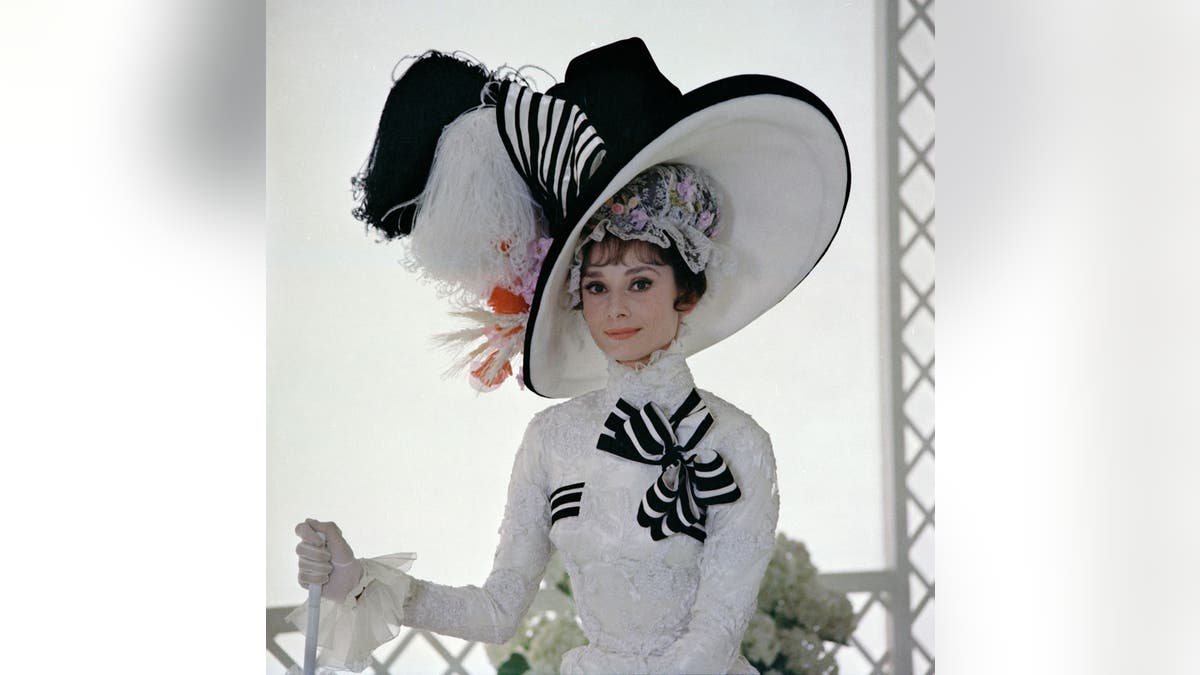
Audrey Hepburn as Eliza Doolittle in "My Fair Lady." Original release date December 25, 1964. (Photo by CBS via Getty Images)
Sadly, Jack Warner and the studio never had any intention of using Hepburn’s voice. As Andre Previn, the musical director on the movie, later revealed, they just strung her along to get her to take the part.
One result of this unfortunate controversy being the perceived "punishment" of Hepburn by some of her Hollywood peers as they peevishly awarded the "Best Actress" Academy Award to Julie Andrews for "Mary Poppins" which, of course, was released in 1964 along with "My Fair Lady."
Some also believe that Hepburn’s legacy is still dealing with radioactive fallout from the 60-year-old controversy. During an interview with The Hollywood Reporter in 2010, Emma Thompson was asked about the "My Fair Lady" remake she was writing, and said, "I was thrilled to be asked to do it, because, having looked at it, I thought that there needs to be a new version. I'm not hugely fond of the film."
CLICK HERE FOR MORE FOX NEWS OPINION
Of Hepburn herself, Thompson added: "She can't sing, and she can't really act, I'm afraid."
Wow. I am a tremendous fan of Thompson, but that criticism is shocking. Great acting, as Thompson knows, is – like beauty – in the eye of the beholder.

Actress Audrey Hepburn affectionately holding the Oscar award she won for her performance in the movie "Roman Holiday" at the Academy Awards ceremony in New York City. (Photo by Ralph Morse/Life Magazine/The LIFE Picture Collection via Getty Images)
Maybe she was coming to the defense of her countrywoman Andrews, but to do so in that fashion after Hepburn – who won one Academy Award while being nominated for four more – had passed and could not defend herself, comes across as petty and small.
On the other hand, to her great credit, just before winning her "Best Actress" award for "Mary Poppins," Julie Andrews very classily stated: "I think Audrey should have been nominated. I’m very sorry she wasn’t."
CLICK HERE TO GET THE FOX NEWS APP
Then, when she did accept her award on the stage, Andrews cleverly wrapped the controversy in paper and a bow by saying: "My thanks to Mr. Jack L. Warner, who made all this possible."
The fact is Hepburn gave an incredible performance in "My Fair Lady." It would be "fair" and fitting if the manufactured stigma of her voice being dubbed could be eliminated by releasing the film with her original vocal tracks … as was her intention.
